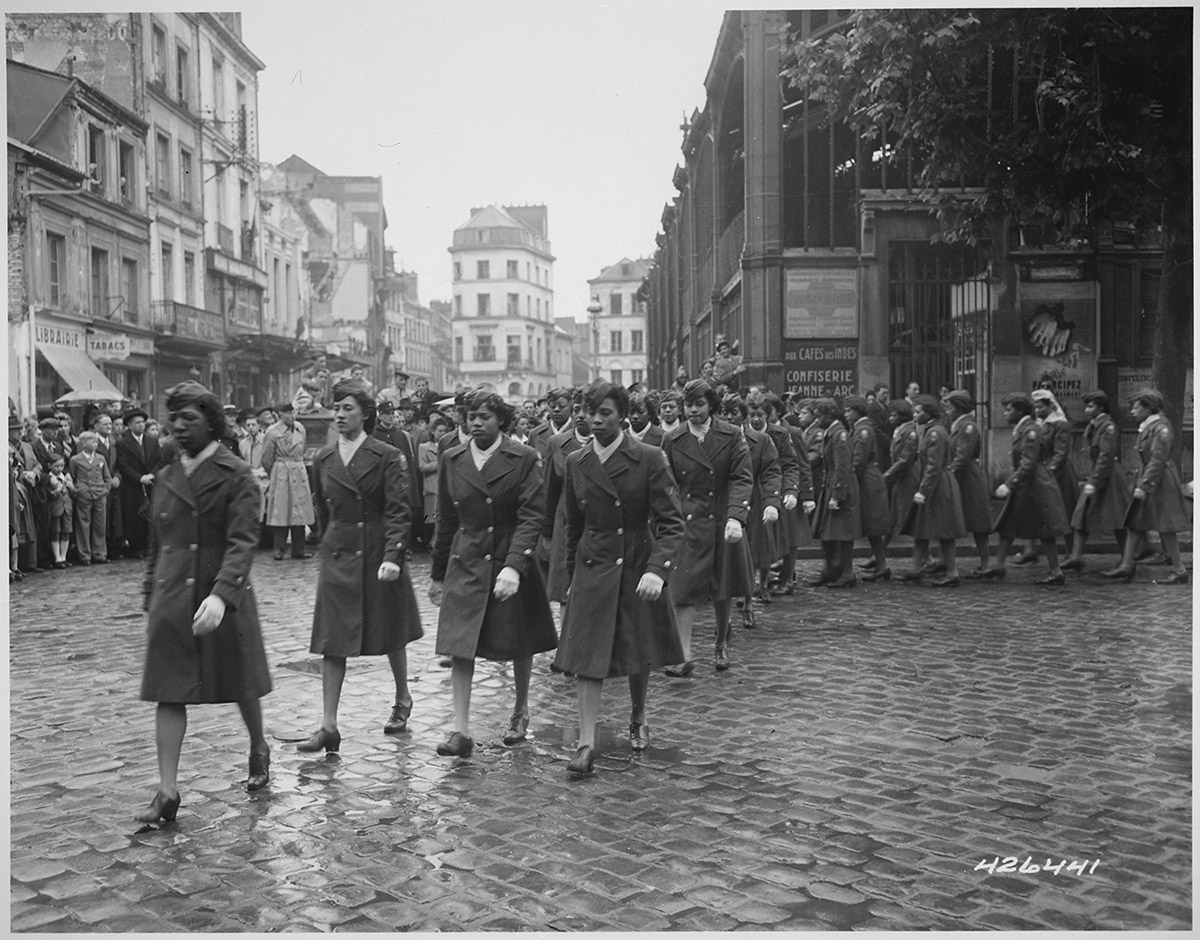
6888th Postal Battalion Delivered High Spirits to Weary WWII Troops
By Pete Lewis | National Archives News
WASHINGTON, November 25, 2024 – Mail is probably not the first thing that comes to mind when you think of war, but ask any service member, and they’ll tell you how important mail call is to keeping troop morale high. During the darkest days of World War II in Great Britain and France, the women of the 6888th Central Postal Directory Battalion were tasked with ensuring troops received their letters and packages from back home.
The Women’s Army Corps’ only primarily Black battalion, nicknamed the “Six Triple Eight,” consisted of 855 women. During the war, there was a shortage of personnel to handle mail overseas. People with social and political influence, such as civil rights activist Mary McLeod Bethune and First Lady Eleanor Roosevelt, and various African American organizations, petitioned the government to find roles for Black women service members overseas. With a motto of “No mail, low morale,” the 6888th was an obvious fit for the role and deployed for Great Britain on February 3, 1945, arriving nine days later.
“During World War II, African American leaders spearheaded the ‘Double V’ [Double Victory] campaign in which they hoped that Black military participation overseas would contribute to the ‘victory’ of democracy over tyranny overseas as well as a domestic ‘victory’ over the systemic racism, segregation, and ‘Jim Crow’ at home,” said Damani Davis, Reference Archivist and African American records Subject Matter Expert. “Most of the public are now aware of the participation of Black men who served as soldiers and sailors during this campaign. However, the historic overseas work of the 6888th Postal Battalion represents the lesser-known contribution of Black women to this same effort.”
Upon arrival, the Six Triple Eight found warehouses filled with a backlog of about 18 million packages and pieces of mail. The buildings lacked sufficient heating and lighting. At this time, there were around 7 million American servicemen and civilian workers in the European theater, and they had become frustrated with not receiving their mail.
With a deadline of six months, the women of the 6888th readied for a massive operation. Splitting into three shifts, they worked 24 hours a day, seven days a week. They created their own organization system, including an index system with more than 7 million individual cards to sort similar names by military serial number. More than 65,000 pieces of mail were handled each shift.
Through hard work and dedication to getting the warfighters their mail, the Six Triple Eight cleared the backlog in Britain in only three months. In May 1945, the battalion sailed across the English Channel to help with another mail backlog. They would head to Rouen, France where a mail jam contained correspondence that was up to three years-old. Though the task may have seemed daunting, by October 1945, the battalion had cleared it, and they were moved to Paris.
At this time, because the war had ended, battalion size was reduced by 300 members, with an additional 200 members being discharged in January 1946. Members of the 6888th were awarded the European African Middle Eastern Campaign Medal and the World War II Victory Medal.
In February 1946, the unit returned to the United States to no fanfare or public recognition and was disbanded at Fort Dix, New Jersey.
“The lack of recognition experienced by these Black women upon their return typified the general indifference, and even hostility, that Black veterans generally received from the broader American public after the second World War,” Davis said. “But like their Black male counterparts, the overseas experience of these women provided them with the extra motivation and determination to fight even harder against the inequities in their homeland.”
On March 14, 2022, President Biden signed a bill to award the Congressional Gold Medal to the 6888th Central Postal Directory Battalion. As of that date, Anna Mae Robertson, Cresencia Garcia, Fannie McClendon, Gladys E. Blount, Lena King, and Romay Davis were the only surviving members of the Six Triple Eight.
Visit the National Archives online for more news, and view the Calendar of Events for upcoming programs.
To browse records of the 6888th, visit the National Archives Catalog.

